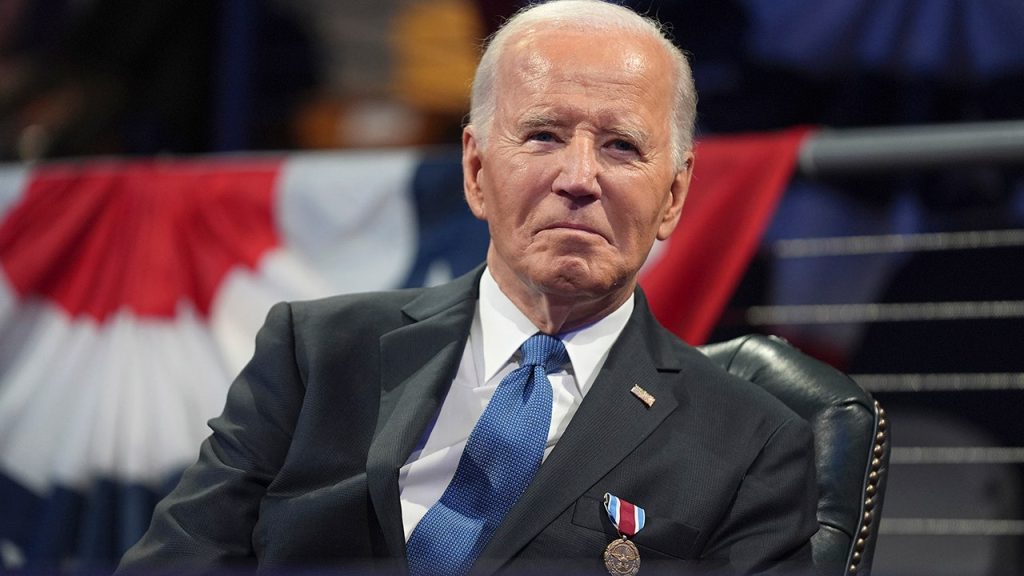The case of Adrian Peeler, a Connecticut drug trafficker granted clemency by President Biden, has ignited controversy and outrage due to the violent nature of his crimes. Peeler orchestrated the murders of Karen Clarke and her eight-year-old son in 1999 to prevent her from testifying against his brother, Russell Peeler, who was accused of shooting Clarke’s boyfriend in front of her son. The brutal nature of the crime, with the child found shot in the back of the head and Clarke riddled with bullets, shocked the community. Despite being acquitted of the murder charge, Adrian Peeler was convicted of conspiracy to commit murder and served 25 years in state prison, followed by a federal sentence for drug trafficking. Biden’s clemency, part of a mass commutation of sentences for individuals deemed “non-violent” drug offenders, has drawn sharp criticism given the severity of Peeler’s crime and its impact on the Clarke family.
The clemency granted to Peeler has been met with disbelief and anger by Clarke’s family, who feel retraumatized by the decision. Oswald Clarke, Karen’s brother, expressed his disgust and shock, emphasizing the lasting pain inflicted upon their family. The White House’s portrayal of the clemency recipients as “non-violent” has fueled the controversy, as Peeler’s direct involvement in a double homicide clearly contradicts this characterization. The decision has also raised questions about the thoroughness of the clemency review process and whether sufficient consideration was given to the victims’ families. Even some Democrats have expressed concern over the decision, highlighting the need for greater scrutiny of the pardon system.
The impact of the Clarke murders extended beyond the immediate family, prompting significant changes in Connecticut’s legal landscape. The state strengthened its witness protection program to prevent similar tragedies, and a park was named in Karen Clarke’s honor to memorialize the victims. Russell Peeler, who ordered the murders, was originally sentenced to death but later received life in prison without parole after Connecticut abolished capital punishment. The case underscores the devastating consequences of witness intimidation and the importance of protecting those who cooperate with law enforcement.
Beyond the Peeler case, the broader scope of Biden’s clemency initiative has also drawn scrutiny. The administration’s claim that the nearly 2,500 commutations focused on “non-violent” drug offenders has been challenged by cases like that of Ferrone Claiborne and Terence Richardson, the “Waverly Two.” These men were involved in a drug deal that led to the death of a police officer in Virginia, though they were ultimately acquitted of murder. Their inclusion in the clemency list raises questions about the criteria used to define “non-violent” offenses and the potential implications for public safety. The officer’s daughter expressed outrage at their release, highlighting the ongoing pain and unresolved grief experienced by victims’ families.
The controversy surrounding Biden’s clemency grants extends to the highly publicized case of Leonard Peltier, a Native American activist convicted in the 1975 deaths of two FBI agents. Despite objections from law enforcement, including former FBI Director Christopher Wray, Biden commuted Peltier’s life sentence, a decision that has further polarized public opinion on the issue of clemency. The Peltier case, along with the others mentioned, highlights the complex considerations surrounding clemency, balancing the goals of criminal justice reform with the need for accountability and the concerns of victims’ families.
The Biden administration’s approach to clemency, while presented as an effort to address disparities in sentencing and promote rehabilitation, has sparked significant debate due to the inclusion of individuals involved in violent crimes. The cases of Adrian Peeler, the “Waverly Two,” and Leonard Peltier underscore the complexities of granting clemency, particularly when balancing the interests of individual offenders with the impact on victims, their families, and public safety. The controversy surrounding these cases emphasizes the need for transparency and careful consideration in the clemency process, ensuring that decisions are made with full awareness of the circumstances surrounding each case and the potential consequences for all involved.


